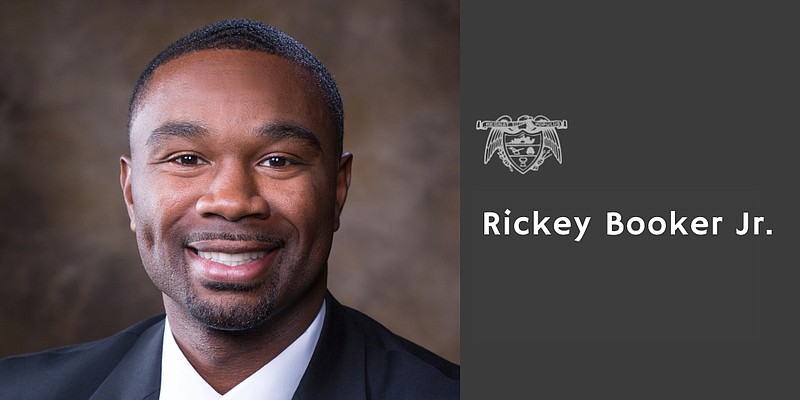It is important to make ourselves more aware of Juneteenth, the only U.S. national holiday that recognizes the 245-year enslavement of Black Americans.
U.S. Rep. Sheila Jackson Lee, D-Texas, co-leader of the Juneteenth National Independence Day Act stated, "Juneteenth honors the end of the years of suffering that African Americans endured under slavery and celebrates the legacy of perseverance that has become the hallmark of the African American experience in the struggle for equality."
U.S. Sen. John Cornyn, R-Texas, co-leader of the bill, stated, "The freedom of all Americans, which Texas celebrates every Juneteenth, should be celebrated all across the nation." On June 17, 2021, President Joe Biden signed Juneteenth into law as a federal holiday.
The first Juneteenth observance to recognize freedom from enslavement in the U.S. was in Texas in 1866. The holiday's name is a combination of the words June and the date, nineteenth.
It is considered the longest-running holiday in the Black community and has often been observed with community celebrations on the third Saturday in June. While I understand the importance of codifying Juneteenth into law in 2021 for Black Americans, it has always represented the day that federal troops arrived in Galveston, Texas, on June 19, 1865, to ensure enslaved people would be freed.
So many people, like Mrs. Opal Lee, a 96-year-old retired teacher, counselor, and human rights activist, dedicated their lives to making Juneteenth a federal holiday. You may have heard of her because in 2016, she made national headlines for walking from Texas to Washington, D.C. to raise awareness of the importance of Juneteenth.
In a 2022 interview with WFAA 8 Dallas news reporter Tashara Parker, Mrs. Opal relived a story she had not shared with many people. In 1939, she was 10 years old when her parents moved their family to Fort Worth, Texas. They moved into a home at the corner of New York and East Anney Street. Her mom took great care to, in Mrs. Opal's words, "fix the house up real nice." The problem was that they were a Black family living in a white neighborhood.
More than 500 white neighbors protested at their house for days. Her parents eventually left in the middle of the night to get away. Once they left, Mrs. Opal said, the mob "tore the place up, and burned furniture." The article in the Shreveport (La.) Journal stated, "Fort Worth Crowd of 500 Forces Negro Family to Flee from Home," but this was not the narrative in the Fort Worth newspapers.
The violence Mrs. Opal's family experienced was not an anomaly for Black Americans in the South. If you don't know Mrs. Opal Lee, I implore you to learn more about the person who so many call "the grandmother of Juneteenth."
In my June 23, 2022, column titled "Why hide oppression? Hidden history cannot be learned from," I stated that, long before Juneteenth was a federal holiday, it was a symbol of hope for the Black experience in this country.
For me, Juneteenth represents my family legacy -- starting with Anthony Lewis, my fifth great-grandfather and the first person in my family to be brought to the shores of this land from Nigeria as an enslaved person. My third great-grandfather, Gen. William Henry Harrison, was born as an enslaved person and later enlisted to fight for his freedom in the Civil War. After the war, he and my third great-grandmother, Sallie Ann Dortch, followed the Union troops all the way to southeast Arkansas where they started Harrison School No. 55 for freed negros, which operated for 50 years before it closed in 1947 when it was annexed to Sparkman Schools (now part of the Harmony Grove School District in Camden). I often wonder if Camden students are taught this important, but often overlooked history.
I encourage everyone, especially those who are quick to lump Juneteenth and Black History Month into the often misappropriated and weaponized category of "woke" or "wokeness," to challenge yourselves to learn something about Black culture and the contributions of Black Americans to these great United States.
In the book, "Think Again: The Power of Knowing What You Don't Know," renowned psychologist and New York Times bestselling author Dr. Adam Grant states that we "often prefer the ease of hanging on to old views over the difficulty of grappling with new ones ... reconsidering something we believe deeply can threaten our identities, making it feel as if we're losing a part of ourselves."
Dr. Grant and many other psychologists have explained that we should consider using counterfactual thinking, which involves imagining how the circumstances of our lives could have unfolded differently. To activate counterfactual thinking, you might ask yourself questions like: How would your stereotypes be different if you'd been born of a different race or gender? What opinions would you hold if you'd been raised on a farm versus in a city, or in a culture on the other side of the world? What beliefs would you cling to if you lived in the 1700s?"
When you take the time to reflect on how easily you could have held different stereotypes, you gain humility, and you just might be more willing to update your views about groups, holidays or cultures different from your own. If you are completely against Juneteenth, I invite you to reframe your thinking and gain knowledge about why there needed to be a Juneteenth in the first place.

